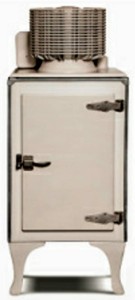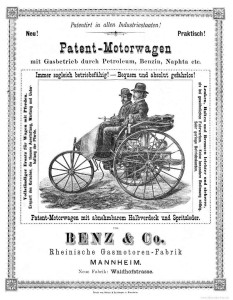We take so much for granted – simple things that we use frequently, complex things that make our lives easier. But don’t you wonder sometimes where they came from? Well here are the origins of a few of those “necessities” of ife.
The wheel – inventor unknown, but came along around 4000-3500 BC
The wheel revolutionized the movement of people, livestock and goods, not to mention pottery making and milling. Experts can’t pinpoint exactly when and where it was invented, but Bronze Age Mesopotamia or Eurasia are the most likely candidates.
 The refrigerator – Scotland, 1755
The refrigerator – Scotland, 1755
One of the most important innovations in food history, the first artificially-cooled refrigerator was developed by Scottish physician William Cullen in the mid-1750s, but the first commercial domestic model wasn’t introduced until 1913.
Soap – Ancient Mesopotamia, 2800 BC
Improvements in human hygiene have enabled civilizations to flourish. The first indoor toilet was created at Skara Brae in northern Scotland way back in 3000 BC. Around the same time, the first cleansing soaps, made from wood ash and animal fat, were invented in ancient Mesopotamia.
Paper – China, 105 BC
The invention of paper is crucial as it enabled civilizations to share knowledge and keep records more effectively. While the ancient Egyptians developed woven papyrus reed ‘paper’ as far back as the fourth century BC, real paper, which is made from mashed-up fibers, was invented in China by Han Imperial Court official Cai Lun around 105 BC.
Photography – France, 1816
The first photograph was created in 1816 by French inventor Nicéphore Niépce using a do-it-yourself camera and paper coated with silver chloride. A key 19th-century invention, photography profoundly changed the way people communicate, learn, entertain, record events and express their artistic creativity.
 The car – Germany, 1886
The car – Germany, 1886
It’s hard to imagine what our lives would be like if the automobile hadn’t been invented. German engineer Karl Benz is widely credited with inventing the first true car, the Benz Patent-Motorwagen, in 1886.
The light bulb – USA, 1879
Where would we be without the light bulb? Several inventors, including English scientist Warren de la Rue, created rudimentary versions earlier in the century, but the first practical incandescent light bulb for the mass market was patented by Thomas Edison in 1879.